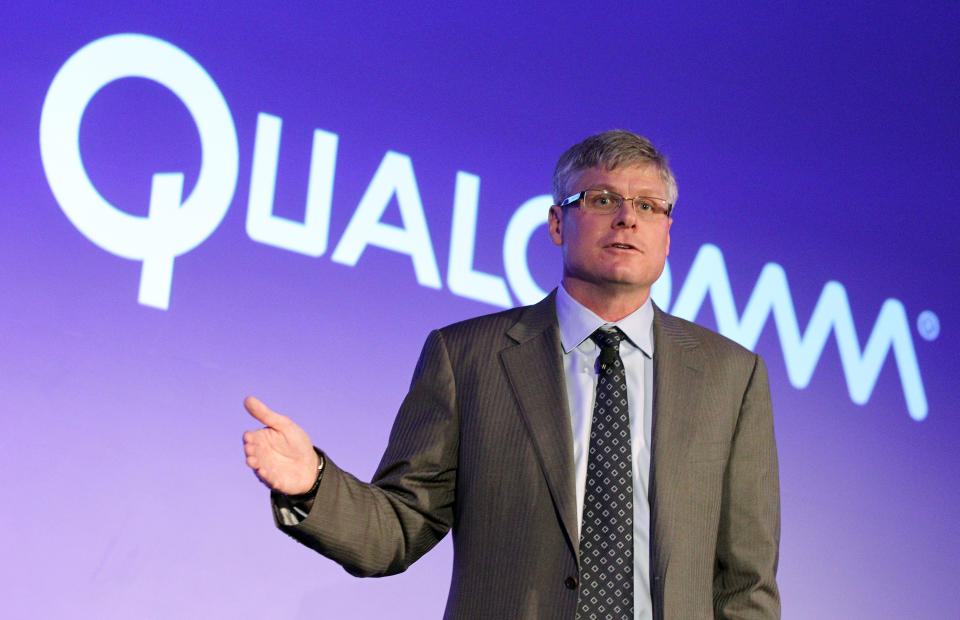Trump administration has ‘a lot of interest’ in input from companies affected by trade war
The U.S.-China trade war has certainly had its effects on the economy — whether it be through agriculture, machinery, or technology.
In a recent interview, Yahoo Finance asked Qualcomm (QCOM) CEO Steve Mollenkopf whether he was satisfied with how the government has communicated with his company regarding those trade tensions. The chipmaker is heavily exposed to China, and when it last reported earnings Mollenkopf said it was lowering its sales outlook for smart devices in 2019 due in part to the trade war.
“For certain companies, and we’re certainly in this category, [there is] very high bandwidth communication,” Mollenkopf said. “In terms of how it works, I go [to the White House] a lot.”

“We’ve been there, along with others,” he said. “The way to think about that is there’s a lot of interest on the part of the administration to get input from the people who are impacted. I think that surprises people to some degree, but it is absolutely true.”
Mollenkopf shared these comments with Yahoo Finance Editor-in-Chief Andy Serwer on an episode of “Influencers with Andy Serwer,” a weekly interview series with leaders in business, politics, and entertainment.
The race to 5G
In the race to 5G, Qualcomm has encountered numerous hurdles, including Chinese company Huawei, which has found itself at the center of many trade talks due to allegations of espionage. The Trump administration placed Huawei on the entity list, meaning U.S. companies can’t deal with them without getting special permission. The Mollenkopf-led company provides Huawei with components for its smartphones, like processors and modems.
“We get a lot of interest in getting our perspective, and then separate from I’d say the executive branch, on the Hill, tremendous interest to understand the ramifications of 5G and how laws and policy should evolve in order to make sure that we’re successful,” he said. “As a result, a lot of them come and ask us what to do.”

In July, Mollenkopf joined tech leaders from Google (GOOGL), Cisco (CSCO), Intel (INTC), Micron (MU), Western Digital (WDC), and Broadcom (AVGO) at the White House to discuss the Huawei ban. President Donald Trump assured them that “his administration would make ‘timely’ decisions about whether to allow American firms to continue selling products to Huawei,” the New York Times reported.
“I spend a lot of time trying to make sure that people are educated,” Mollenkopf said. “Part of the responsibility of a company that has a strong position in a technology is you can’t complain about the laws and policy that people are making unless you’re there helping to educate the people that make it. And there’s a lot of desire for that to occur, and we’re happy to do it.”
Adriana is an associate editor for Yahoo Finance. Follow her on Twitter @adrianambells.
READ MORE:
U.S. farmers are exasperated by latest trade war moves: 'Another nail in the coffin'
National Retail Federation: New Trump tariffs are 'too great a gamble'
Read the latest financial and business news from Yahoo Finance
Follow Yahoo Finance on Twitter, Facebook, Instagram, Flipboard, SmartNews, LinkedIn, YouTube, and reddit.
